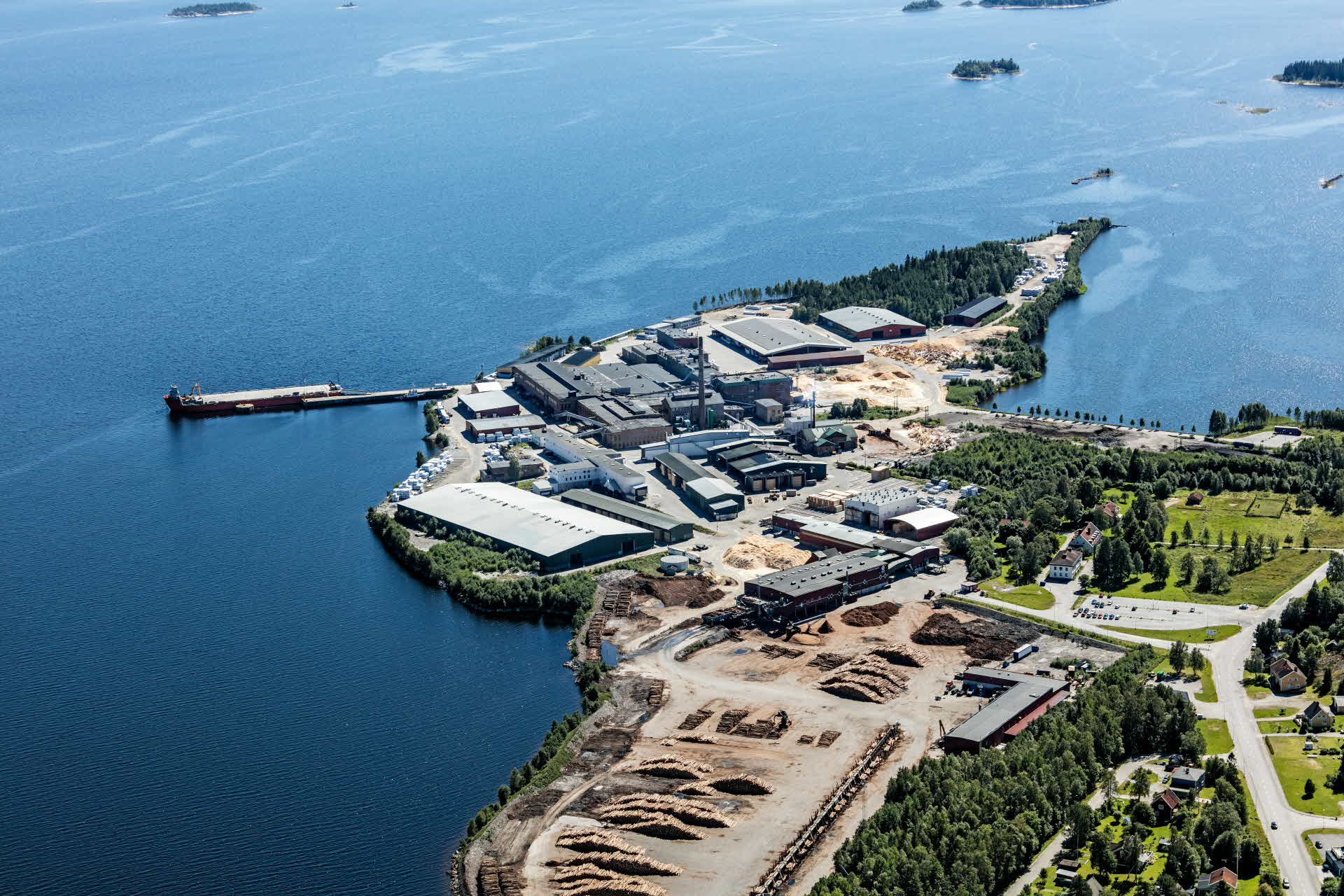
In-house pellet plant for Rundvik Sawmill
- News
- Wood products
- Sustainability
SCA has decided to invest SEK 70 million in a new saw-line infeed and pellet plant at the Rundvik Sawmill. This investment will not only broaden and strengthen operations at the sawmill, it will also make the company’s entire value chain even more sustainable.
CLEARLY, WE ARE entering an exciting period. In combination with the investment already made in the new freight terminal here at Rundvik, the ability to produce our own pellets will help to strengthen our conditions for doing more business in the planed-product range,” says Magnus Karlsson, sawmill manager at Rundvik.
The new plant will produce between 25,000 and 30,000 tonnes of pellets per year, a capacity that makes it practicable for all the shavings currently generated by the planing mill to be turned into fossil-free fuel on site instead of being transported for processing. According to Jerry Larsson, President of SCA Wood, this will have several knock-on benefits.
“We see this as an investment that creates benefits on several levels. It provides the sawmill with a greater latitude, benefits the local forestry industry and supplies renewable fuel to Obbola, while also shortening transport distances in our own operations.”
A stronger sustainability profile
The pellets produced at Rundvik will be both offered for sale on the local market and sent to SCA’s Obbola Paper Mill, which has already invested in a new bio-fuelled lime kiln. This means that almost the entire paper mill will be supplied with biofuel.
“The investment in Rundvik is also an indirect investment in SCA in Obbola, which could become a kraftliner supplier that can proudly boast a completely fossil-free production process,” says Mikael Källgren, President of Renewable Energy at SCA.
“Forestry plays a vital role in creating bio-based raw materials to replace fossil-based, and this investment is a good example of that. The bioenergy market is under pressure and it is very positive that we are able to increase the volume coming to market while simultaneously strengthening the sustainable value chain within SCA.”
For SCA, the ability to produce pellets in-house at Rundvik will also shorten the transport chain to Obbola by at least 113,600 kilometres each year, corresponding to just over 115 tonnes of carbon dioxide emissions annually.